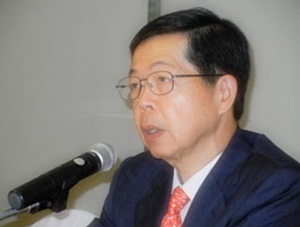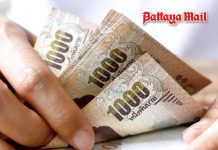BANGKOK, AUG 29 –Bank of Thailand (BOT) Governor Prasarn Trairatvorakul said Wednesday that the government faces a major challenge and will have to work hard and persistently to achieve the 2012 export growth target of seven per cent, based on the country’s export performance in the first half of this year.
He said the country’s monthly export value in the first six months of this year was less than US$20 billion with July being the best-performing month at US$19 billion.

If the government aims for a seven per cent growth rate, monthly exports in the five remaining months this year must be at least US$22 billion, he said, expressing doubt that Thai exports can achieve that goal, and will eventually expand at only four per cent per month.
Finance Minister Kittiratt Na-Ranong last week adjusted Thailand’s export growth projection from 15 per cent to nine per cent but the National Economic and Development Board (NESDB) predicted a 7.3 per cent growth at the most.
Mr Kittiratt, concurrently deputy prime minister, admitted he made a ‘white lie’ when he projected an export growth of 15 per cent early this year. He claimed that the announcement was meant to strengthen confidence in the public and private sectors. The public response has resulted, however, in reduced confidence for both the finance minister and the economy.
Meanwhile, the governor of the Bank of Thailand predicted an economic growth of 5.7 per cent for this year, giving assurances that the BOT has mapped out measures to shore up the economy in case the world economic crisis more deeply affects Thailand.
The current three per cent policy interest rate which could be cut further and a flexible exchange rate policy to cope with the influx of foreign currency are two of the measures cited by the BOT chief.
In August, foreign inflows continued into Thailand while the Thai baht has become less volatile at Bt31.20-31.70 per US$1 – a rate comfortable for the business sector, he said, adding that Thailand’s foreign exchange reserves are sufficient in case of an outflow of foreign funds.
Thailand is well-prepared in its risk management, he said and, if necessary, the measures can be implemented.
Referring to Thailand’s readiness for the 2015 ASEAN Economic Community (AEC), Mr Prasarn said executives of the national banks of ASEAN member countries will jointly work out proposals for an ASEAN free monetary system within this year.
The proposals will be submitted to a meeting of ASEAN national bank governors next year to set the qualifications of financial institutes wishing to do business in the region.




